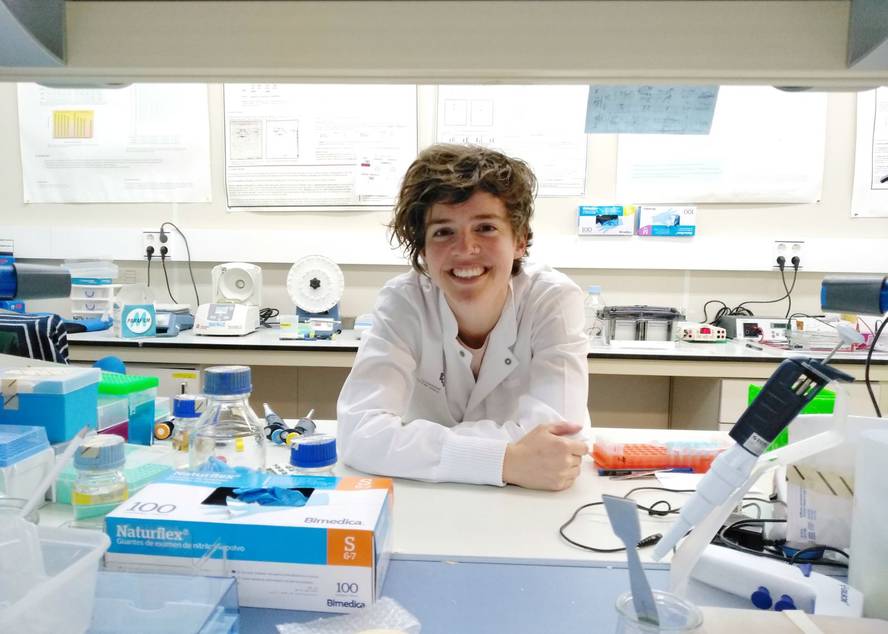"The society that knows science is freer and more manipulable"
Nagore Elu Arantzamendi began to devote himself to high school to the activity that occupies most of his time: research. “I wanted to know how the human body worked. That made me curious and thought about studying medicine or something like that.”
But he did not become a doctor. When it came time to choose university studies, a new study appeared: Biochemistry. “I did it for him, because I thought I preferred to work with diseases and not with the sick,” Elu recalled. And he thinks he was right.
Studying biochemistry, it seems quite “natural” to focus on research: “At the end of the degree I knew the world of research and I really liked it. Then I did the master’s degree and now I am studying the second year of doctorate in the research group of Ugo Mayor”.
Precisely, the aim of the group is to unravel the molecular bases of Angelman syndrome, with which Elu collaborates: “The people around me are very important to me. When I entered, the team was very small, there were only two people who were finishing the thesis. But now it has grown, and that gives me great help and support. Faced with any problems or obstacles, you are not alone, you have whom to address.”
Keys to Science
Elu attaches as much importance to the socialization of research as to research. Proof of this is their membership in an association that organizes conferences and other initiatives for the dissemination of scientific topics: Keys to Science. "The association's motto says that the society that knows science is freer and more unmanipulable, and I fully agree with what it says," Elu said.
In his opinion, one of the main mistakes of scientists is that they don’t inform people of what they do because they “don’t know or make enough efforts.” However, according to Elu, outreach is critical for people to know what scientists do on a day-to-day basis and understand how important it is: “I think many people are made strange science and technology, and to normalize these issues we have to make an effort to get closer.”
That is why he participates in the association Keys to Science. “If people are aware of what scientists do, they will give us more support or help.”
He is also an athlete: “It’s my getaway and it’s also good to work: when you’re hooked it’s good to put your head on something else. You often think of sports.”
Nagore Elu Arantzamendi (Ondarroa, 1992). He studied biochemistry and molecular biology at the University of the Basque Country. He then completed the Master's degree in Biomedicine and Molecular Biology at UPV-EHU, and is currently undertaking the second year of the PhD programme in Biomedicine thanks to a grant from the Basque Government. He is also a member of the Ondarroa Science Keys Association.







